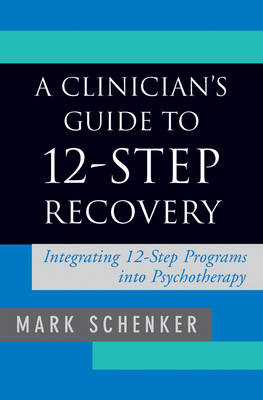
A Clinician's Guide to 12-Step Recovery
Integrating 12-Step Programs into Psychotherapy
Seiten
2009
WW Norton & Co (Verlag)
978-0-393-70546-1 (ISBN)
WW Norton & Co (Verlag)
978-0-393-70546-1 (ISBN)
The worlds of psychotherapy and addiction recovery have long been uneasy bedfellows.
Most rehabilitation programs offer both twelve-step treatment and psychotherapy, but they are not integrated either in theory or in practice. While intuitively there would appear to be a clear connection between these two areas, in fact, they remain uncomfortable allies, and sometimes not even that. People in recovery from drug and alcohol addiction are often wary of professionals who have no personal experience of addiction and recovery. For a novice therapist (and more than a few seasoned clinicians) there are few more dreaded questions to be asked by an addicted client than, “Are you in recovery yourself”? The apprehension, and all too often the reality, is that this question will be followed by a dismissal of the therapist’s usefulness, or disparagement of his/her “book learning.” This chasm is unfortunate for all concerned.
Here is one of the first books to address this uneasy alliance and to explicate it. The primary purpose of this book is not to analyze the program, but to make it more accessible to mental health professionals, to serve as a guide to what might be encountered in attending a meeting, or what your clients might deal with in working the program him/herself. It is meant to give therapists a real-world primer for dealing with clients who are in these very popular programs.
Most rehabilitation programs offer both twelve-step treatment and psychotherapy, but they are not integrated either in theory or in practice. While intuitively there would appear to be a clear connection between these two areas, in fact, they remain uncomfortable allies, and sometimes not even that. People in recovery from drug and alcohol addiction are often wary of professionals who have no personal experience of addiction and recovery. For a novice therapist (and more than a few seasoned clinicians) there are few more dreaded questions to be asked by an addicted client than, “Are you in recovery yourself”? The apprehension, and all too often the reality, is that this question will be followed by a dismissal of the therapist’s usefulness, or disparagement of his/her “book learning.” This chasm is unfortunate for all concerned.
Here is one of the first books to address this uneasy alliance and to explicate it. The primary purpose of this book is not to analyze the program, but to make it more accessible to mental health professionals, to serve as a guide to what might be encountered in attending a meeting, or what your clients might deal with in working the program him/herself. It is meant to give therapists a real-world primer for dealing with clients who are in these very popular programs.
Mark Schenker, PhD, is a psychologist at the Caron Foundation and maintains a private practice near Philadelphia. His website is www.recoveryoptionsassociates.com.
| Erscheint lt. Verlag | 27.2.2009 |
|---|---|
| Sprache | englisch |
| Maße | 165 x 244 mm |
| Gewicht | 602 g |
| Themenwelt | Medizin / Pharmazie ► Medizinische Fachgebiete ► Psychiatrie / Psychotherapie |
| ISBN-10 | 0-393-70546-3 / 0393705463 |
| ISBN-13 | 978-0-393-70546-1 / 9780393705461 |
| Zustand | Neuware |
| Haben Sie eine Frage zum Produkt? |
Mehr entdecken
aus dem Bereich
aus dem Bereich
Buch | Softcover (2023)
Kohlhammer (Verlag)
24,00 €
Menschen mit psychischer Erkrankung wirksam unterstützen
Buch | Hardcover (2023)
Psychiatrie Verlag
35,00 €


